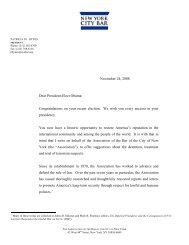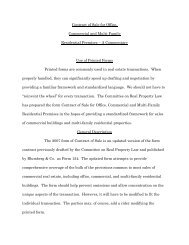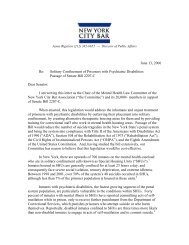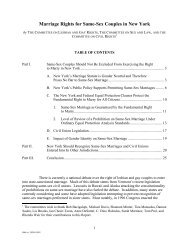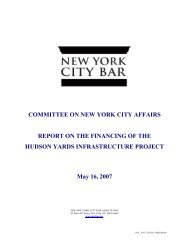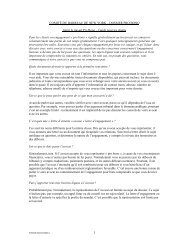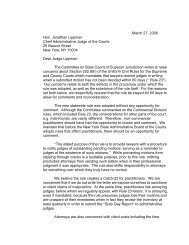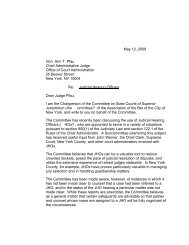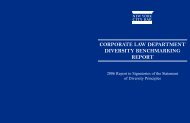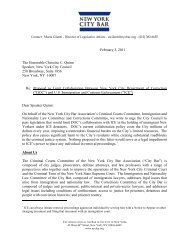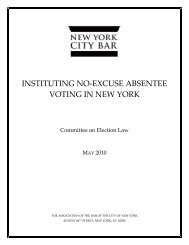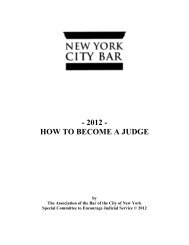Consumer Class Actions in New York - New York City Bar Association
Consumer Class Actions in New York - New York City Bar Association
Consumer Class Actions in New York - New York City Bar Association
You also want an ePaper? Increase the reach of your titles
YUMPU automatically turns print PDFs into web optimized ePapers that Google loves.
een described as Aunquestionably . . . the most troublesome@ prerequisite. Friar, 78<br />
A.D.2d at 95. It has foiled many an attempt to certify. In Friar, the Second Department<br />
wrote<br />
In the Federal system, the Apredom<strong>in</strong>ance@ <strong>in</strong>quiry has led to<br />
widely differ<strong>in</strong>g and irreconcilable results because of the<br />
practice of focus<strong>in</strong>g upon the del<strong>in</strong>eation of all questions as<br />
either Acommon@ or A<strong>in</strong>dividual@ and then decid<strong>in</strong>g which<br />
group outweighs the other. Discrete weigh<strong>in</strong>g has evoked<br />
criticism from those who suggest that the focus of the<br />
predom<strong>in</strong>ation <strong>in</strong>quiry should be that of promot<strong>in</strong>g efficient<br />
economy of judicial resources. . . . We, too, abjure the<br />
weigh<strong>in</strong>g process <strong>in</strong> the belief that the decision as to whether<br />
there are common predom<strong>in</strong>at<strong>in</strong>g questions of fact or law so as<br />
to support a class action should not be determ<strong>in</strong>ed by any<br />
mechanical test, but rather, Awhether the use of a class action<br />
would >achieve economies of time, effort, and expense, and<br />
promote uniformity of decision as to persons similarly<br />
situated=”.<br />
Id. at 96-97 (citations omitted).<br />
Indeed, more often than not, when class treatment of a claim is denied <strong>in</strong> <strong>New</strong> <strong>York</strong><br />
for a reason other than stand<strong>in</strong>g or plead<strong>in</strong>g, the reason has been the absence of a<br />
predom<strong>in</strong>ance of common questions. The mere existence of <strong>in</strong>dividual questions, however,<br />
should not defeat class certification. See Pruitt v. Rockefeller Center Properties, Inc., 167<br />
A.D.2d 14, 21-22 (1st Dep=t 1991); Gilman v. Merrill Lynch, Pierce, Fenner & Smith, Inc.,<br />
93 Misc.2d 941, 944 (Sup. Ct. N.Y. Co. 1978).<br />
So long as there is a Acommon legal grievance,@ <strong>New</strong> <strong>York</strong> courts should grant<br />
class certification, notwithstand<strong>in</strong>g possible differences regard<strong>in</strong>g some factual issues or <strong>in</strong><br />
the amount or measure or damages. See We<strong>in</strong>berg v. Hertz Corp., 116 A.D.2d 1, 6-7 (1st<br />
7



